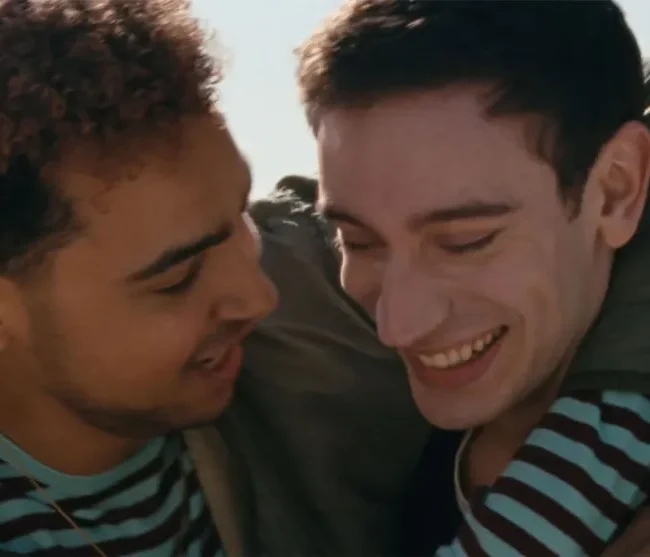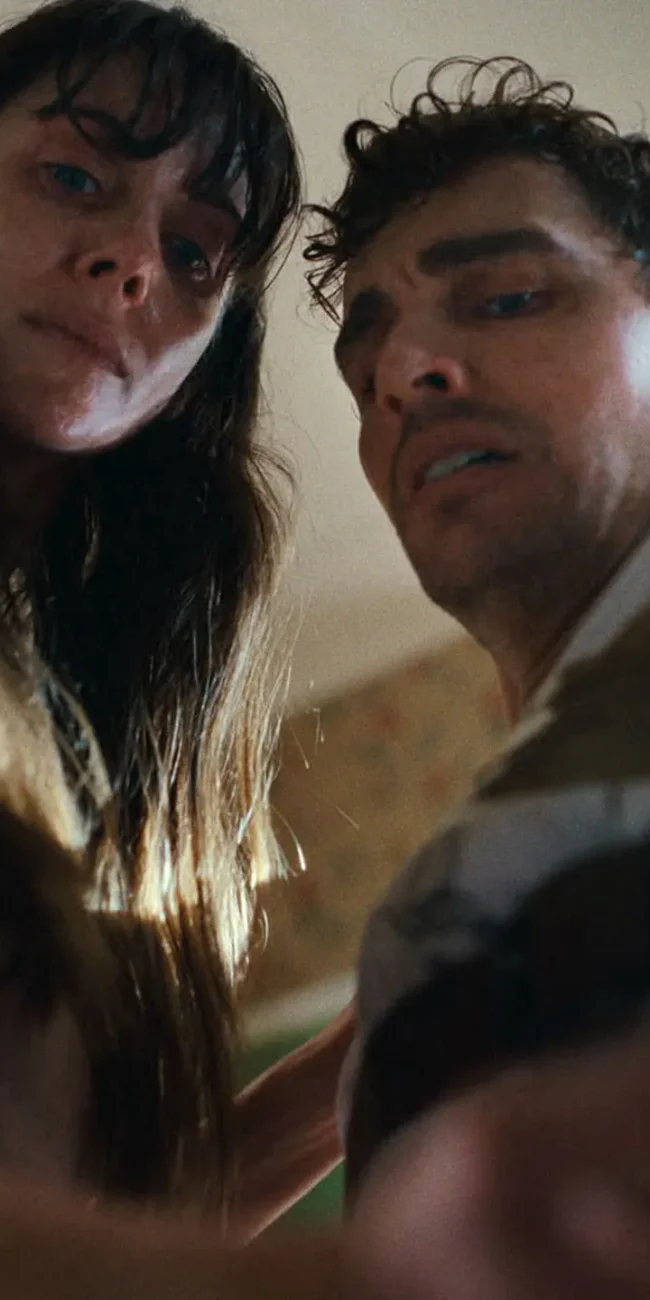A Conversation with Amanda McBaine & Jesse Moss (BOYS STATE)
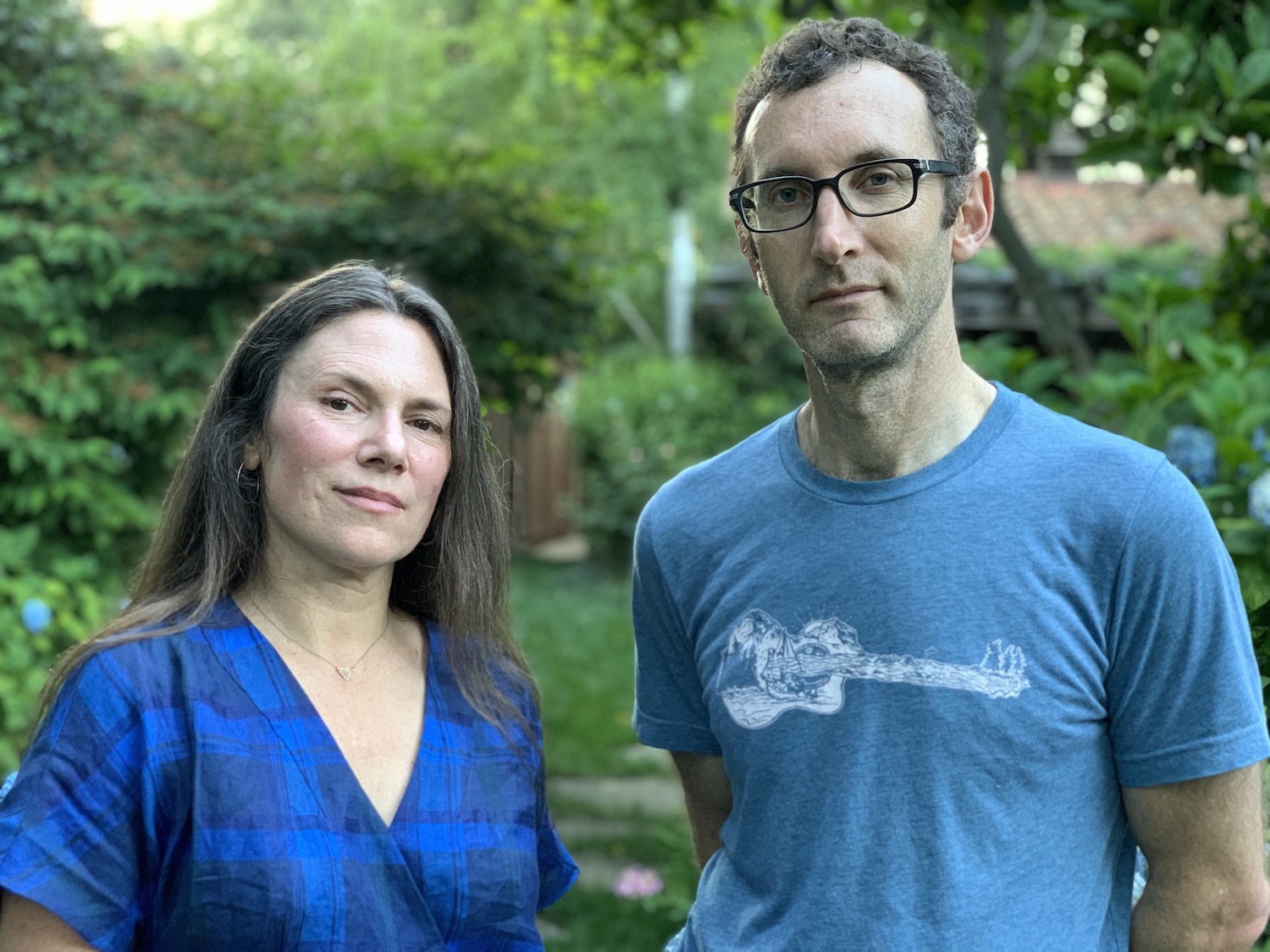
The new documentary Boys State, from husband-and-wife co-directors Amanda McBaine and Jesse Moss (The Bandit), premiered at the 2020 Sundance Film Festival (where our Matt Delman reviewed it). The film tells the gripping saga of a week in the life of a thousand teenage boys who attend the annual political-engagement summer camp run by the American Legion in Austin, Texas (there is also a camp for girls, but this movie only focuses on the boys). Through luck of the draw, each young man is assigned to one of two fictional political parties – the Federalists and the Nationalists – and then, by election within each party, seek various offices, the highest being governor. Jockeying for position, they struggle to define themselves – and their beliefs – over the course of an intense training in the ins and outs of civic discourse, action and legislation, not to mention dirty political tricks. By the end, Boys State becomes a powerful metaphor for the state of our nation, for good and bad. I spoke to McBaine and Moss just last week, by phone. Here is a condensed digest of our conversation, edited for length and clarity.
Hammer to Nail: So, Amanda and Jesse, you are a married couple with two kids together, and this is not the first time you have collaborated, though I believe you only co-directed once before on an episode of the Court TV series “The Investigators.” Amanda, you’ve otherwise usually produced the work that Jesse has directed. What made you to want to co-direct this piece?
Amanda McBaine: The short answer is that there is no other way we could have made this film, because it was such a fast and furious event where we needed to capture a lot of elements all at once. We needed all hands on deck and that included both myself and Jesse in the field, but it also included the extraordinary group of cinematographers that we brought in from New York, all vérité veterans in their own right. But then the longer answer is really Jesse and I have been working together for such a long time that we have a kind of shorthand and a very, very shared sensibility on films we watch and films that we make and write together in the edit room.
Generally speaking, our films have been shot over two years, and it’s a one-man band, Jesse in the field. This one was shot in a week with a couple of weeks of shooting before the program started, in casting, but this was just a totally different animal. And I found being in the field great and easy and not actually that big a departure from being in the edit room together. I mean our sensibilities and shorthand existed in the field, as well.
HtN: What was the division of labor like for you two, then, in the field as co-directors?
Jesse Moss: I think it was an organic process to figure out where we needed to put ourselves to make this work. And actually, at one point it meant doing something we hadn’t done together in 20 years, which was me operating camera and Amanda holding the boom mic, just because it was all hands on deck. And Amanda was really responsible for running this tight ship of a giant crew. And I was probably spending a little more time than I should have concerning myself with what was being shot by our team of cinematographers. We have a lot of overlapping skills and sensibilities, but also we’re different people and we do have different skill sets that make us, I’d like to think, a potent filmmaking team. So, my attention to detail sometimes suffers and Amanda doesn’t miss a thing. And that’s great. And I don’t know, I think both also providing the emotional support and antennae that you need to have to make your way through this experience with the subjects and with the crew.
HtN: You’re based in San Francisco and this story takes place in Texas. How did you discover it?
JM: You know, I vaguely knew about the program because Bill Clinton had famously gone through it, and I remember that famous photograph of him shaking JFK’s hand in the Rose Garden. And I don’t think I thought about the program again until 2017. And then we read in The Washington Post.about the Texas Boys State program voting to secede from the union. It was like a big, scandalous Texas story. And something of a joke, but also serious because it was, I think, very telling of our moment, which has only worsened since then, of political division, political paralysis, intractable differences that seems to possess our country. And in reading about Boys State, we thought this could be a really interesting prism through which to look at political division, to read the tea leaves of our future, if that was possible, to see what the next generation is capable of. Can they actually talk to each other? Because that’s what’s so interesting about Boys State and Girls State: they bring people together in the same room who have different politics.
HtN: Still, the fact is that single-sex politics, though it teaches the boys quite a lot about the political process, is not really the real world, because they’re only dealing with boys. Why do you think they do this? After all, high school Model UN is coed. So why do you think the American Legion decided to have separate boys camps and girls camps, Boys State and Girls State?
AM: I think that not so far in the future there’s going to emerge what [subject] Steven Garza talks about in the movie, which is Peoples State, which will be really interesting. But I can only think that the reason they do this now is a vestige of how the program was created in the ’30s. There are pieces of this program that are very old-fashioned in the sense of, I mean, it’s maybe less ’30s and more ’50s. There’s some leftover ’50s-ish vibes and they’re trying to change. And then there are pieces of it that are very forward thinking. And I think that they’re working hard to, for instance, diversify the kids that get invited, but they aren’t quite there yet. So, I think some of the gender segregation is a leftover of just how it’s always been. What else do you think, Jess?
JM: No, I think that’s right. I think it’s partly a product of the history of the program and they haven’t shaken that off yet. And we still have single-sex education in America and sports are still gender-segregated, but you’re right: it’s not a perfect simulation of politics for one big reason, that there are no young women there, but also it’s only just a simulation that could never approximate the real. And I think that despite its limitations, it’s actually still really remarkably complicated, complex, and that it’s really large. It’s a thousand teenagers. They do a lot, they build parties, they run for different offices. They have a legislature, both an upper body and a lower body. They write, debate and pass legislation. So there’s a lot going on. There are no lobbyists, but there is a news media.
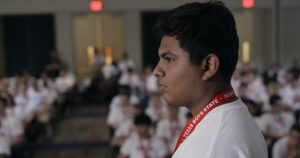
Steven Garza in BOYS STATE. Photo Courtesy of Apple TV+.
I think, for our purposes, the fact that it was all male did make certain debates clearly problematic; for example, around the issue of abortion. Though I guess so much of that on the national level is men making decisions about women’s bodies, right? And that’s mirrored to an extreme extent at Boys State. But I think the boys, we discovered, were actually very uncomfortable talking about abortion. I think they recognize that that’s where maybe they should keep their mouth shut…some of them.
AM: That being said, it would be really interesting to go to Girls State and see them debate abortion; all women, just women talking about that issue. I do think that policy discussion, though, was one piece of what we were looking at, but the bigger piece really is electoral politics and sort of what you do as a leader to get elected. And I think that those actions tended to be more of what our film ended up covering and we’d spent a lot less time in the House and the Senate, which is too bad. I mean, I think there’s another film in that. I really liked those spaces and I want to watch a bill get written, debated and passed, for sure.
HtN: So, when is the sequel? When is the sequel to Boys State – Girls State – coming out? Next year?
JM: When COVID is over.
AM: Can we get rid of this pandemic thing and then we can come back to camp in real life?
JM: It’s thrown a bit of a wrench in our plan to make the sibling, we call it, not a sequel. I really would love to see that.
HtN: You talk about the policy debates, and in your film you’ve got this character, Robert, who comes across as very forcefully conservative. And then we find out later that some of his views perhaps aren’t so conservative. So did you find that a lot of people were putting on a façade of what they believed for the sake of getting along?
JM: Well, I think one thing that was interesting to us, one question going into the project, was how fixed are their political beliefs and where do they get them and how do they bring them out and how do they wrestle with them privately and publicly? And I think Robert’s case is an extreme example in that we didn’t know that he was fronting. But I think we did recognize that this is a highly performative space, as is real electoral politics. You’re standing up on a stage and talking about what you stand for. And you’re also trying to read the room and, as Robert astutely points out, you can’t get elected on a minority opinion, right?
And so he miscalculates, in a very surprising way, in assuming that this rabble, this crowd of unruly Texas boys, is more conservative than they turn out to be, actually. And it’s Steven, his unlikely competitor, modest and understated, a man of integrity who correctly reads the room and summons the boys in a way that’s more honest. And so that was a great discovery of the documentary, that Robert had been not forthright about his political views. It gives us perspective on the contortions that I think our national political leaders must put themselves through. And so then there’s the inevitable question of who is lying about their opinion. I think we can fairly surmise that there are some people we’re sure are lying. That’s pretty clear, right? It’s the people we’re not sure that we might wonder about.
HtN: So, we have the two political parties, the Federalists and the Nationalists, and you seem to have slightly greater cinematic representation among the Nationalists; I think you have one more character of theirs in the movie. And we certainly don’t meet the Federalist candidate for governor, Eddy, until relatively late in the game. Why is that? Did you just not follow him as much, early on?
AM: When we were casting, we did go all in with Robert, Steven and Ben. And Robert and Steven got selected to both be Nationalists and the primary contest in that particular party was pretty dramatic and vivid. And we spent a lot of time filming that. We did also film the other party, because Ben ran that party. And so we filmed all of their drama, as well. And Eddy was a big part of that. He won his primary and obviously went on to be their representative in the general. So we filmed all of that. We walked away from this event after a week of shooting with 350 hours of footage. And then you spend a year, a very long time, putting together the film. And I think for us, it was important to approximate our own emotional journey filming that week.
And honestly, Steven was our North Star through that event. And unfortunately, you only have so much time in a film to tell your story. We had a five-hour version of this film, and there’s a lot more of the Federalist Party in that. And there are some fascinating twists and turns in their journey, as well; I mean, some really heroic moments for Ben, in particular. But you have to kind of, whatever horrible thing Hitchcock used to say, “kill your babies,” right? And in cutting it down, I think we favored the primary part of the narrative that had Robert and Steven going head to head. So, our general election became smaller and took up less time in our film.
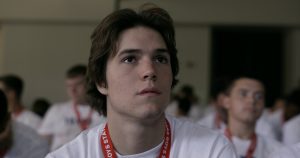
Robert MacDougall in BOYS STATE. Photo Courtesy of Apple TV+.
JM: We sized up Eddy, and once he emerged as a credible candidate on the Federalist side, we tracked his ascendance, but Ben was really driving the show. And we thought of Eddy more as an extension of Ben’s master strategist role. And I think that’s really more the role Eddy plays in the film, as an extension of Ben, though Eddy is a really capable and appealing candidate in his own right. I don’t think he went on the journey that the other young men went on, though. We had to work it out in the edit room, but I think ultimately we’re happy of what the distribution of screen time was. People do have questions about Eddy, but I think that the contest between Steven and Robert, as Amanda said, was so compelling, so surprising, so unexpected, that it really does take up a lot of real estate, as it should.
HtN: It’s hard to believe that what we watch only takes place in a week. It feels so much more intense than that.
AM: It was a really dense bouillon cube of time. Every hour was worth a day and they are go, go, go. The minute that event gets started, it is really up at 6am, back in the dorms by 10:30pm, walking 10 to 15 miles across the University of Texas campus every day in a hundred degree Texas heat. So it’s a real doozy. And plus, they’re sleeping two hours a night, because once they get in the dorm, they’re hanging out. So it’s like, I don’t know …
JM: That’s the exciting thing about drama. We’ve made documentaries like The Overnighters that were shot over 18 months, or sometimes even longer with Speedo, our first film, and we’re used to being super patient, and that’s often what you need when you’re filming a longitudinal film: to have someone’s life change in a way it needs to change for a film to be compelling. But someone’s life can be transformed in 90 minutes.or even less. And so, I tend to think that a week does contain multitudes. We also experimented in the edit room with how to demarcate time, and to what extent to make the passage clear. I think viewers are not sure how much time elapses. And if they walk away thinking that was a kind of lifetime, that’s great.
AM: It’s also kind of true to the emotional experience.
JM: That is true. And I think that the experience for the young men was, in ways we didn’t believe was possible, fundamentally a coming-of-age moment for them. And it’s a crucible experience where they’re really tested and tried and put through the wringer and they come to know themselves. And we knew it would be kind of wild and unruly, but the ways in which it would change these young men for the better, and maybe for worse, I think was unexpected.
HtN: I think crucible is a good word. So, tell me about that sofa, or divan or whatever you want to call it, on which you have so many interviews and they’re all sitting in different ways. Some are lounging, some are sitting up. It’s a fascinating spot. How did you choose that as an interview location?
JM: That was actually something that we worked out with our cinematographer, Thorsten Thielow. The idea was that we would have an interview set where we could drag our kids away from the action and sit them down and get them to process what was happening. I think we didn’t know what we would get. We didn’t know if we would have time to do that; they’re so heavily scheduled. It was actually really logistically difficult to do that. But also, I don’t know, we didn’t think very carefully about what we wanted it to look like and feel like. It’s actually a rec room in a very nice old dorm on campus. And we love that couch.
And through the week, as you see in the film, they sort of get progressively more strung out, if you will. And we said, “Look, man, if you want to lie down, go ahead.” And it becomes a therapeutic couch. I mean, I do love the formalness of the frame and yet the juxtaposition of it, casualness of a sweaty teenage boy in a white t-shirt, stretched out like he’s an odalisque in a painting. I don’t know, I think they’re beautiful.
AM: They were so exhausted.
JM: But they’re so revelatory, those quiet moments of reflection, of contemplation, of confession. And I think that’s a powerful tool, a novelistic tool, the interior monologue, a way to chart the difference between what you see publicly and what is the private struggle. Which is, in a nutshell, what vérité filmmaking is.
HtN: Indeed. I want to thank you for chatting with me and thank you for making the film. I really enjoyed it.
AM/JM: Thanks a lot!
– Christopher Llewellyn Reed (@ChrisReedFilm)








